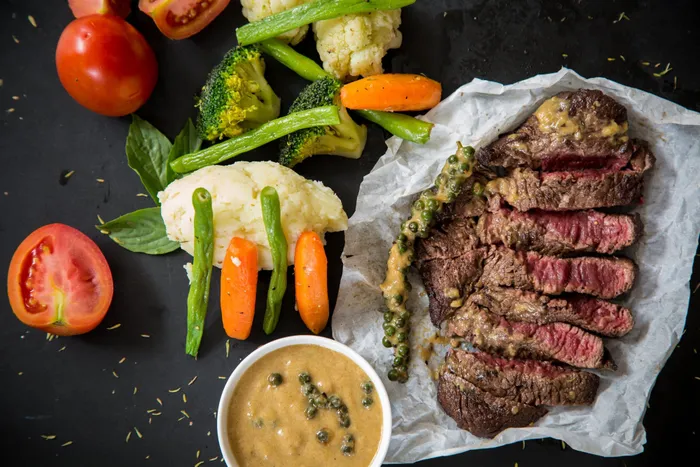Meat on a budget: 5 tips for saving money on high-quality meat

Eating meat is an important part of many people’s regular diets. Picture: Pexels/Malidate Van
When you are shopping on a budget, it is a good idea to try to save money on meat. It is crucial that every bit of meat you buy can be used to keep your family fed. One great way to get your money’s worth is to ensure you are buying the best meat on offer.
Eating meat is part of many people’s regular diets. It provides much-needed protein and help with strong bones and muscles. Whether you prefer chicken or beef, there are plenty of meat options to suit your unique needs and help you stay satiated and healthy.
However, meat can be expensive - and if you are interested in saving money on all your favourite meats, you can implement some smart shopping strategies.
These strategies can help you get all the cuts you want without breaking the bank.

Shop around
It is always important to compare while shopping to get the best deals on any item, including meat. Take the time to investigate stores in the area to determine which one offers the best quality and price for the meat you are looking for.
Local stores, farmer's markets, and online grocers can be great sources for budget-friendly meat. Do not hesitate to call around to ask about pricing and see where you can score the best deal.
Try cheaper cuts of meat
Think about the meals you plan to make. If you use your slow cooker a lot, you can go for the cheapest cuts of meat without sacrificing quality. Cooking low and slow makes any cut of meat turn out tender and juicy.
Another example is instead of buying chicken breasts, go for the legs. They are so cheap and so flavourful.
Explore local butchers
Local butchers often offer more competitive prices and personalised service compared to big supermarkets. Getting to know your butcher could also lead to insider tips on sales, promotions, and recommendations on budget-friendly cuts.

Know what the labels mean
Knowing what the meat labels mean before you shop means not being fooled into thinking a certain label guarantees better quality. No certification system is perfect, so it is important to discuss with your family what level of quality meat you can afford and desire to buy.
For example, if you are only concerned about antibiotics, buying meat labelled “antibiotic-free” would be more affordable than buying organic, even though they both would meet your goal.
In either case, educate yourself on food labels so you really know what you are buying.
Buy in bulk, especially when items are on sale.
Stock up on beef, chicken, and more when it is on sale, then freeze it until you are ready to cook. Find how long all of your groceries will last in the fridge.
The same goes for bulk-buying because family-sized packages of meat tend to be cheaper than smaller portions and will not compromise on quality. Freeze whatever you cannot use before the best-by date for the future.